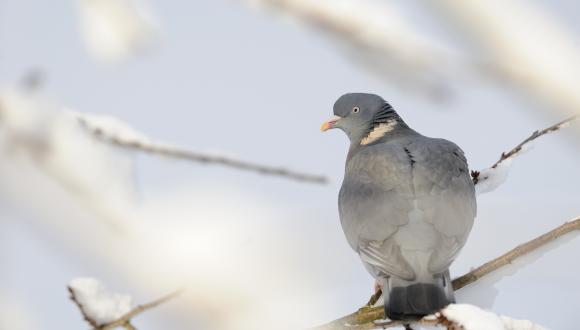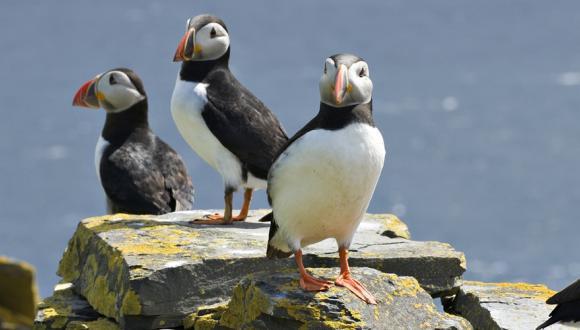Birds: licences for surveys, research and ringing
NatureScot handles licences for bird surveys and scientific or research work, while the British Trust for Ornithology issues ringing permits.
Surveys
Most bird surveys don’t need a licence. But a licence is required if a survey:
- could involve disturbance to breeding Schedule 1 bird species
- might involve interfering with nests or nest contents or any other offence in relation to wild birds
NatureScot is responsible for issuing survey licences for Schedule 1 species. We only grant licences to experienced people.
We issue two types of Schedule 1 survey licence – a bird survey licence and a bird monitoring licence.
Bird survey licences are issued to consultants surveying for development purposes, e.g. to gauge wind farm impacts on birds. A licence covers all Schedule 1 birds within the specific locations to be monitored.
Bird monitoring licences are for all other survey projects or long-term monitoring. These licences usually cover particular species at specific locations and may be used for the monitoring of barn owl nest boxes and barn owl surveys of buildings for developments.
Download the Licence application form – bird survey
Science and research
You should apply to us for a licence if your work could otherwise result in an offence in relation to wild birds.
To apply for a licence for scientific or research work, email [email protected].
You should include:
- your name, address and telephone number
- full details of your project – covering what and who will be involved, and where and when
- a completed licence application reference form (if applicable)
If this is your first licence application for this activity, we’ll need two references from you. Your referees should be familiar with your work in this area and able to vouch for your competence.
If you are applying specifically for a seabird research licence, please see our Guidance for Seabird Research Licence Applications, which identifies the level of detail we expect to see in an application.
Ringing
Catching and ringing wild birds requires a great deal of skill and experience to minimise the risk of injury and stress to the birds.
The British Trust for Ornithology (BTO), under licence from NatureScot, operates a system of training and permits to allow competent people to catch and ring wild birds in Scotland.
BTO also grants permits to catch wild birds using unconventional methods and to attach other tags or marks (e.g. satellite tags) to wild birds.
Find out about access and permission to ring in Scotland on the BTO website.
BTO Nest Record Scheme
Registered participants in the BTO Nest Record Scheme are permitted to briefly examine the nest contents of wild birds including Schedule 1 species. This is allowed under a licence that we issue to BTO.
Find out about taking part in the Nest Record Scheme on the BTO website.
Raptor Study Groups
All Raptor Study Group licence applications, renewals and amendments must come from a Raptor Study Group chairperson.
Contact your local Raptor Study Group if you need a licence to monitor raptors on its behalf.
Licence returns
A condition of any licence is that you must submit a licence return to us. Your licence will tell you what return information is required and how to submit it.
Bird survey or monitoring licence return information should be submitted to us using our bird survey return form. Email us your completed form, giving your name and licence number in the subject line.
Bird science and research licence return information can be emailed to us. You should give your name and licence number in the subject line.
Licence changes and renewals
You should get in touch if you wish to amend a licence. But check your licence conditions first: you may be able to appoint agents and assistants without having to get them named on your licence.
Find out about adding persons to a licence.
You must also remember to contact us to renew your licence. Licences aren’t renewed automatically.
Find out more
Accompanying notes for Schedule 1 Bird Survey, and Monitoring Licences
Contact
If you already have a licence number, include it in the subject line of your email, or have it to hand when you call.





